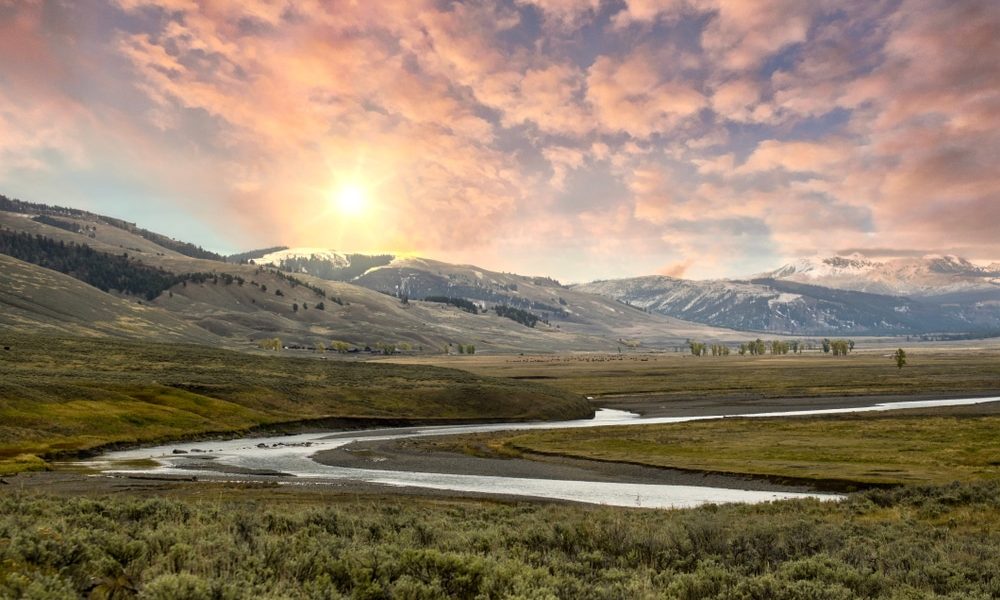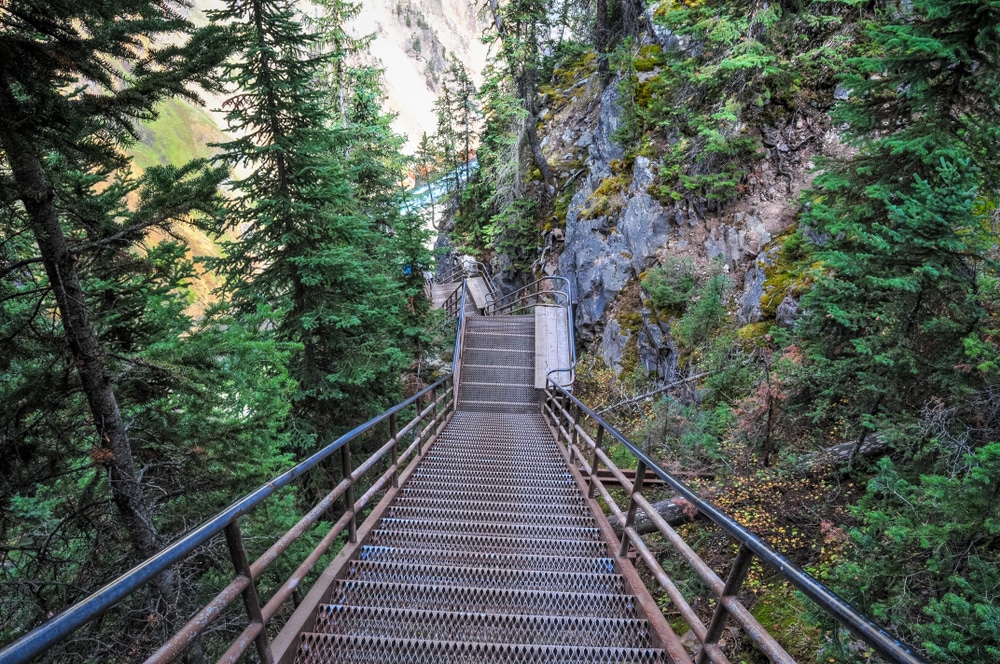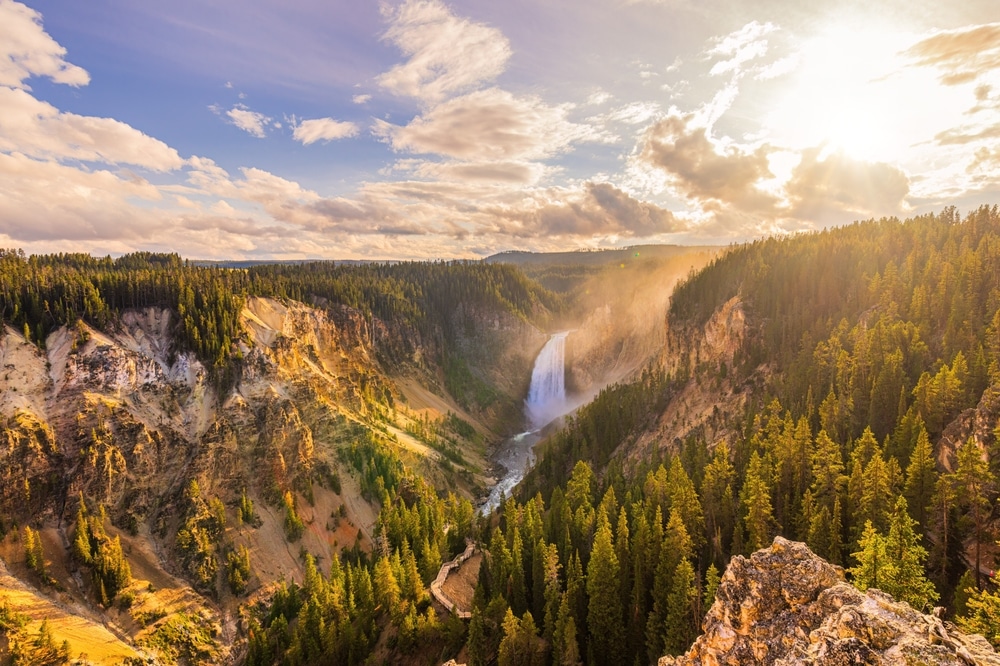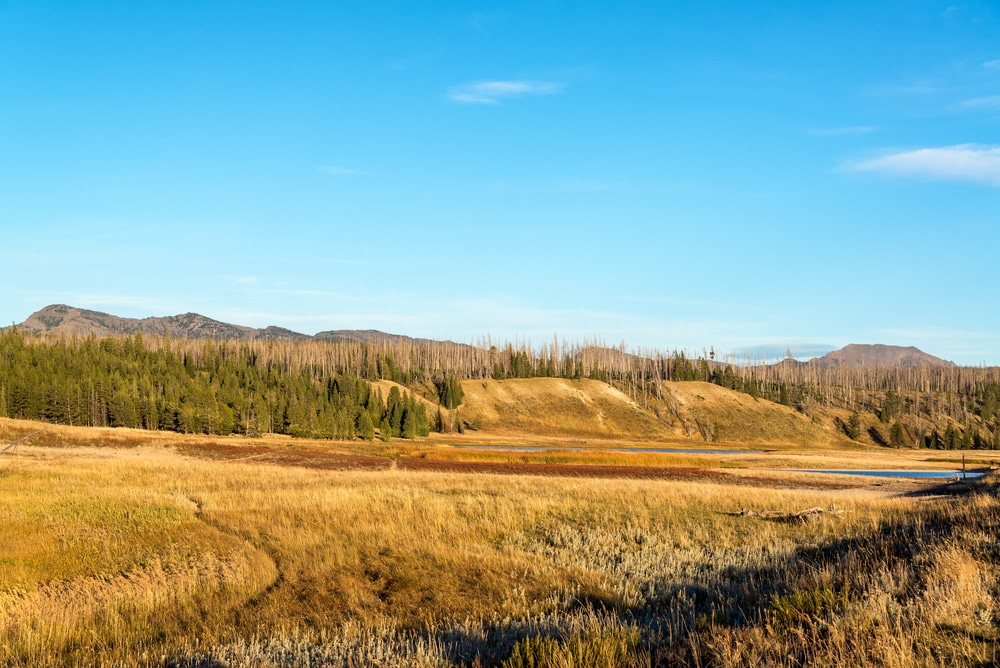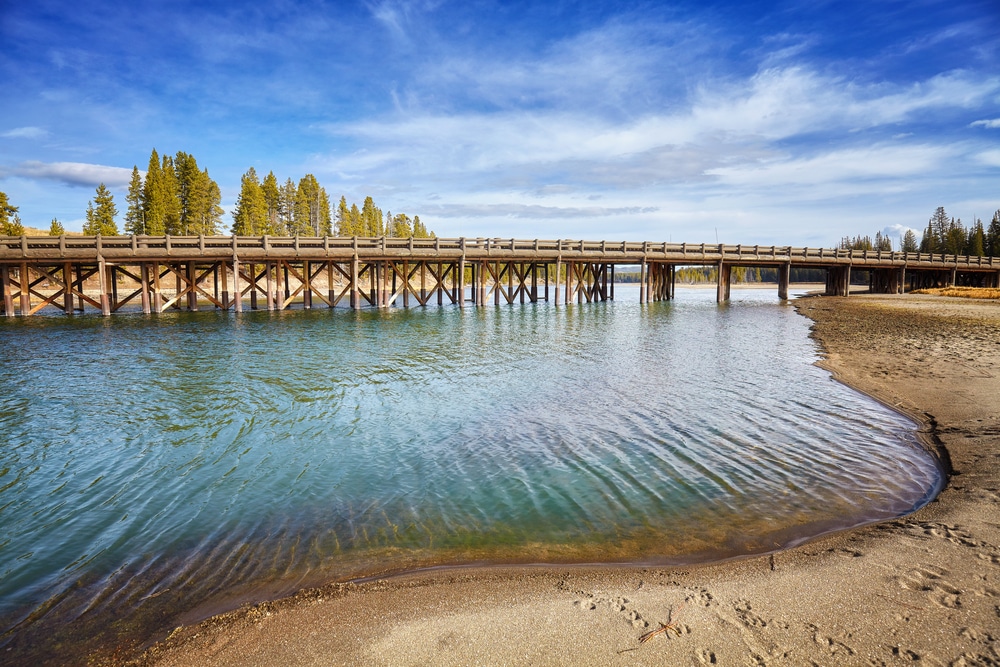Lamar Valley, often referred to as the “Serengeti of North America,” is a sweeping expanse of grassland and river valley located in the northeastern corner of Yellowstone National Park, Wyoming, USA. Renowned for its rich wildlife and breathtaking landscapes, Lamar Valley is a prime destination for nature lovers, wildlife photographers, and anyone seeking to experience the raw beauty of one of America’s oldest national parks.
Geography and Landscape
Lamar Valley stretches along the Lamar River, which flows from east to west and is flanked by rugged mountains and rolling hills. The valley floor, with its relatively flat terrain and wide-open spaces, provides an ideal habitat for a diverse array of wildlife and offers unobstructed views that are perfect for observation and photography. The area is accessible via the Northeast Entrance Road, which runs through the valley and provides year-round access to some of the most remote areas of Yellowstone.
Ecological Significance
Lamar Valley plays a critical role in Yellowstone’s ecosystem. It serves as a vital wintering ground for many species and supports a rich biodiversity. The valley’s grasslands, coupled with the abundance of water from the Lamar River and its tributaries, create a fertile environment that sustains large herds of ungulates and, consequently, a healthy population of predators.
Wildlife of Lamar Valley
Lamar Valley is best known for its impressive wildlife viewing opportunities. It hosts one of the highest concentrations of large mammals in North America, including:
- Bison: Lamar Valley is a stronghold for Yellowstone’s iconic bison herds, which can be seen grazing throughout the valley.
- Wolves: After their reintroduction to Yellowstone in the mid-1990s, wolves have thrived in Lamar Valley. The valley provides one of the best places in the world to observe wild wolves in their natural habitat.
- Elk and Pronghorn: These species are commonly sighted, especially during their respective rutting seasons when their dramatic mating behaviors can be observed.
- Grizzly and Black Bears: Both species of bear roam the valley, often seen in the spring and early summer as they forage for food.
- Birds: Lamar Valley is also a haven for bird watchers with species such as eagles, hawks, and the elusive great grey owl.
Visitor Experience
Visitors to Lamar Valley are treated to one of the most undisturbed natural scenes in Yellowstone. The valley’s main road is paralleled by several pullouts and viewing areas where people can stop, observe, and photograph wildlife. It is advisable to bring binoculars or a spotting scope for the best wildlife viewing experience.
For those interested in hiking, there are several trails that lead from the valley into the surrounding mountains, offering both challenging hikes and more accessible walks. These trails provide not only physical activity but also a deeper connection with the natural environment, away from the roadside crowds.
Conservation and Challenges
Conservation efforts in Lamar Valley are focused on maintaining the delicate balance between wildlife habitats and human recreation. As visitation increases, managing human-wildlife interactions becomes crucial. Park regulations that promote respectful distance from wildlife are strictly enforced to protect both animals and visitors.
Cultural and Historical Aspects
Lamar Valley holds historical significance as a travel route for Native American tribes, and later, for settlers and miners. Artifacts and structures found in the valley reflect its rich cultural past, adding another layer of depth to the visitor experience.
Conclusion
Lamar Valley is a shining example of Yellowstone’s wild beauty and ecological importance. Its status as a premier wildlife-watching destination is well-earned, drawing visitors from around the world eager to witness North America’s wildlife in a setting that is both majestic and serene. Whether through the lens of a camera, the glass of binoculars, or the naked eye, the experiences Lamar Valley offers are profound and lasting. It remains a testament to the success of conservation efforts and the enduring allure of natural wilderness.
